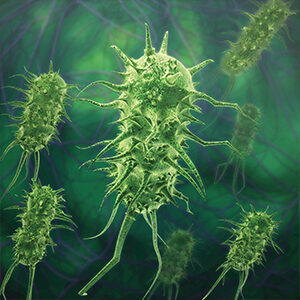What is Chicken Pox?
Chickenpox is an infectious disease caused by the varicellazoster virus, which results in a blister-like rash, itching, tiredness, and fever.
Who gets chickenpox and how soon after infection do symptoms appear?
An exposed person with no immunity to chickenpox can develop symptoms in 10 to 21 days, with the usual incubation period being 14 to 16 days.
How is chickenpox spread?
It is spread from person to person by direct contact or through the air by coughing or sneezing. It is highly contagious. Direct contact spread of the virus occurs when a non-immune person is exposed to the fluid from blisters of a person who either has chickenpox or shingles. A person who has never had chickenpox will develop chickenpox when exposed to the virus for the first time, including exposure to shingles.
What are the symptoms of chickenpox?
The most common symptoms of chickenpox are rash, fever, headache, and loss of appetite. The rash usually develops on the trunk and face, and then spreads to the rest of the body. The rash first appears as many small, itchy, red bumps which turn into fluid-filled blisters. Several different groupings, or crops, of these blisters can appear over the following few days. Chickenpox illness lasts about five to ten days. Most children are uncomfortable for the duration of the disease. Children should be kept out of school or childcare until all blisters are dried and crusted over.
When and for how long is a person able to spread chickenpox?
Persons with chickenpox are contagious for one to two days before the rash appears and continue to be contagious until all the blisters are crusted over, usually in four to seven days after rash onset.
Does the infection of chickenpox make a person immune?
Most people are immune to chickenpox after having the disease. However, second cases of chickenpox can occur. The frequency of re-infection is not known, but it appears to be uncommon.
What are the complications associated with chickenpox?
In most cases of chickenpox, in otherwise healthy children, bed rest, fluids, and control of fever are recommended. Children with chickenpox should not receive aspirin or other non-steroidal anti-inflammatory drugs [NSAIDs, e.g., naproxen (Aleve, Naprosyn), ibuprofen (Advil, Motrin)] for reducing fever because of the possible risk of Reye’s syndrome or necrotizing fasciitis, a dangerous skin/tissue infection.
Complications of chickenpox are rare but can occur. Bacterial infections, as well as pneumonia, can occur in infants, adults, pregnant women, and immune compromised persons. Diarrhea and dehydration are also a risk. Consult with a healthcare provider about medicines for controlling fever and if further treatment is needed for serious cases of chickenpox.
What if someone has never had chickenpox and is exposed to someone who is infected?
The chickenpox vaccine, if received within three to five days after exposure, can prevent or lessen the effects of infection. For those who cannot be vaccinated (e.g., pregnant or immunocompromised persons), there is a different treatment used to prevent infection.
How are pregnant or immunocompromised people protected after an exposure?
There is a special vaccination (VariZIG) that can be used to protect people at risk for complications who cannot be vaccinated using the traditional vaccine.
Are there vaccines for chickenpox?
A vaccine to prevent chickenpox is available. The vaccine is recommended for all non-immune, healthy persons over 12 months of age. A second dose of the vaccine is recommended between four to six years of age. Two doses of the vaccine are required to enter schools in Washington State.
What can be done to prevent the spread of chickenpox?
Get vaccinated. It is impossible to predict who will have a mild case of chickenpox and who will have a serious or even deadly case of the disease. The vaccine is safe and effective.

Communicable Disease Investigation & Prevention (CDIP)
Epidemiologists monitor, track, and respond to infectious disease in the community to prevent spread of illness.

